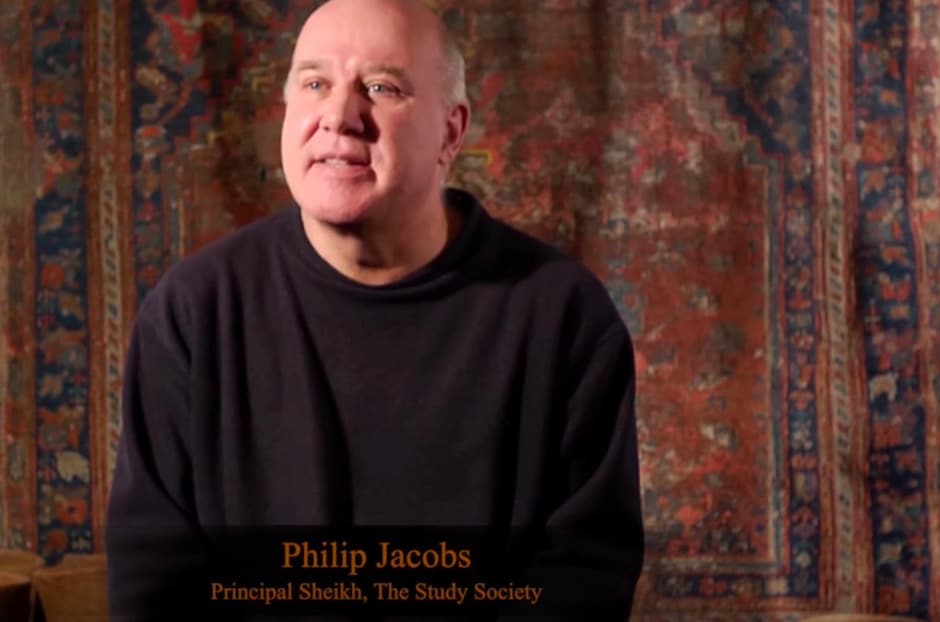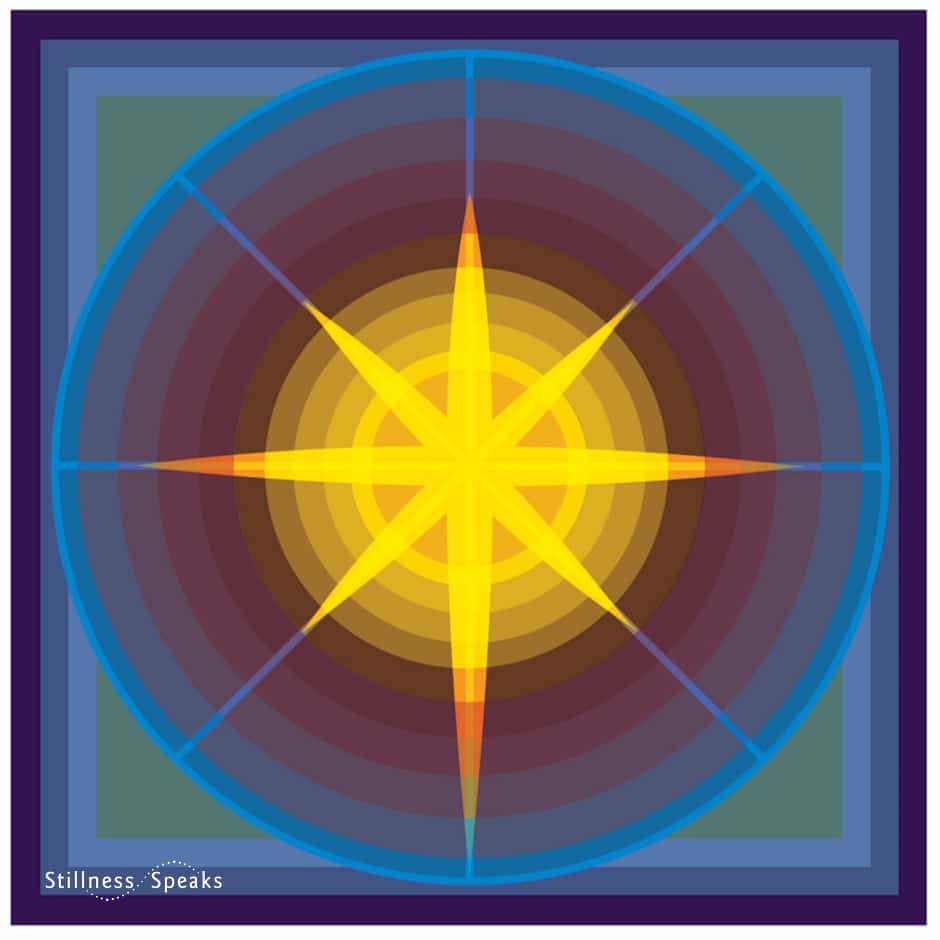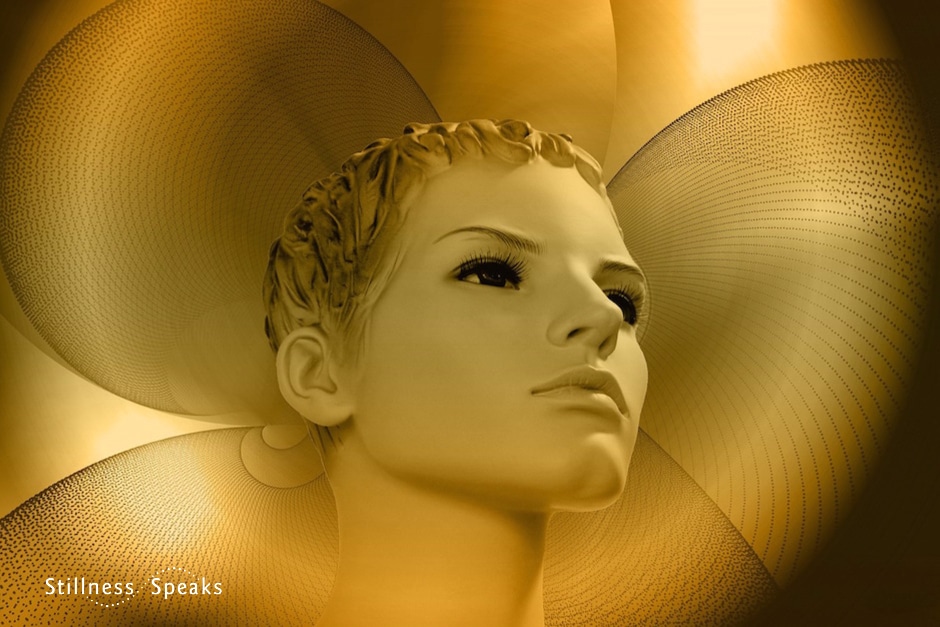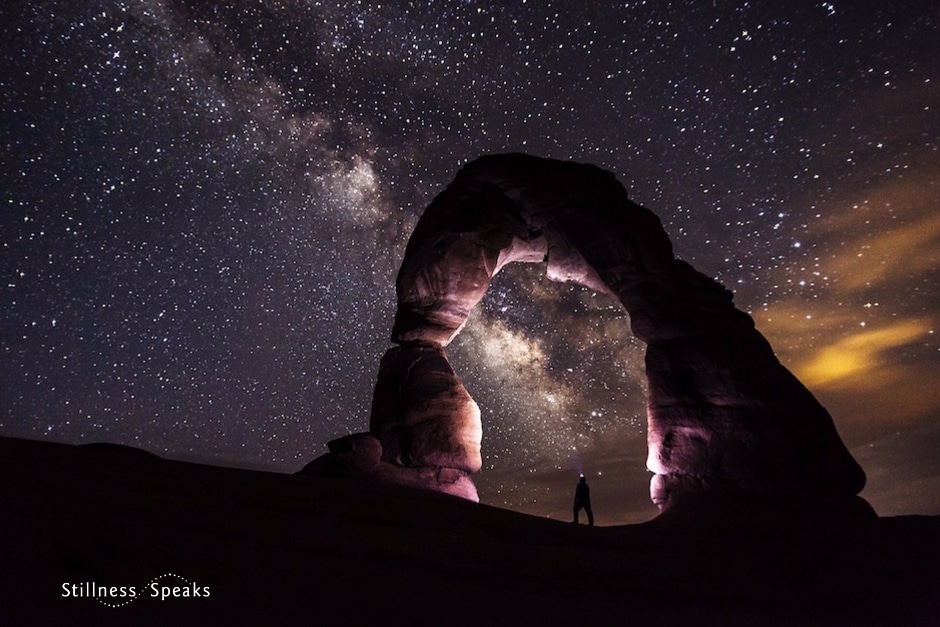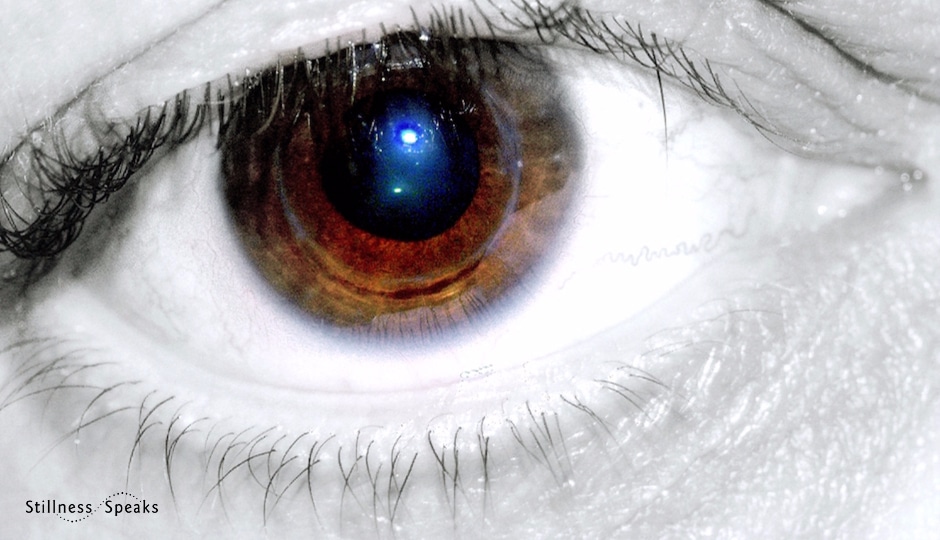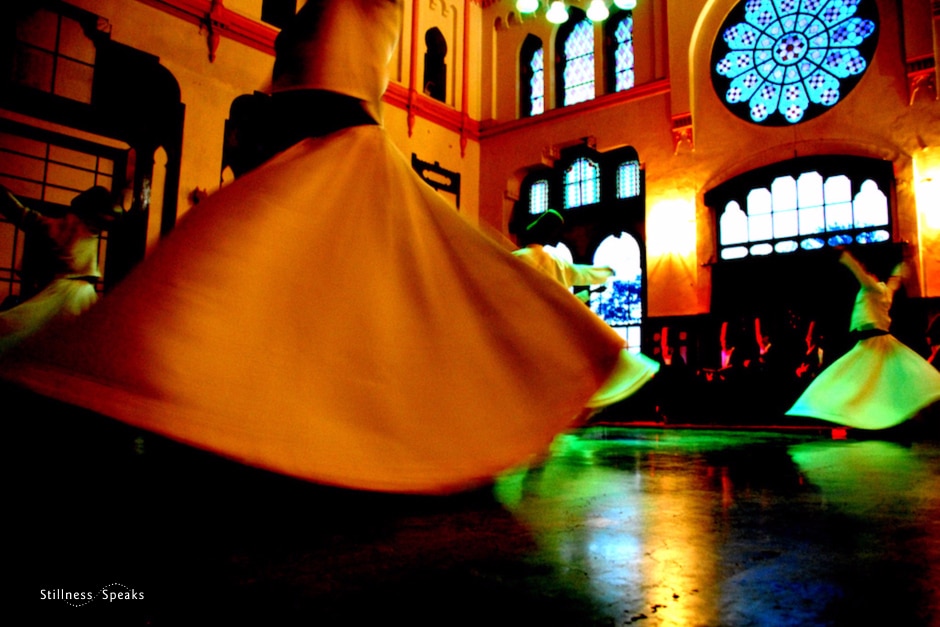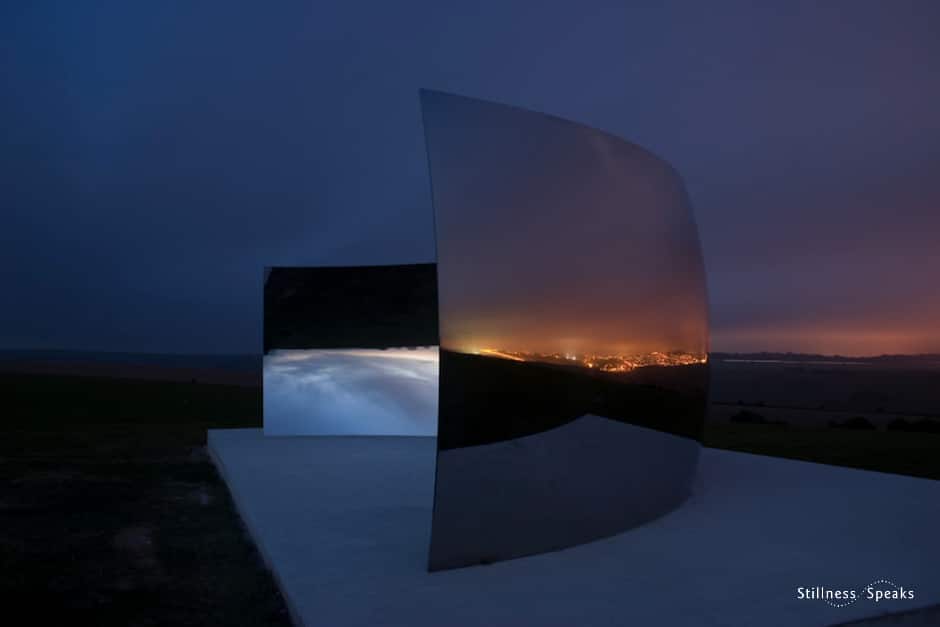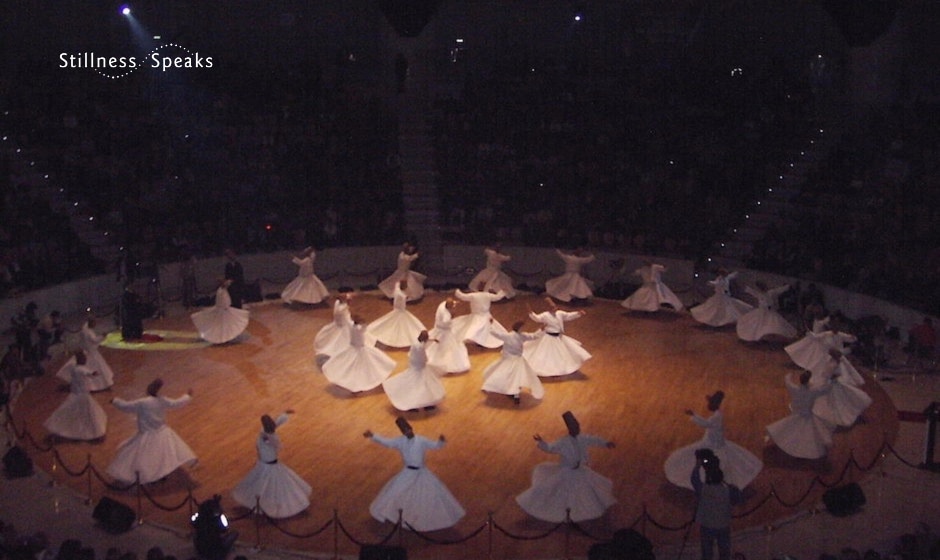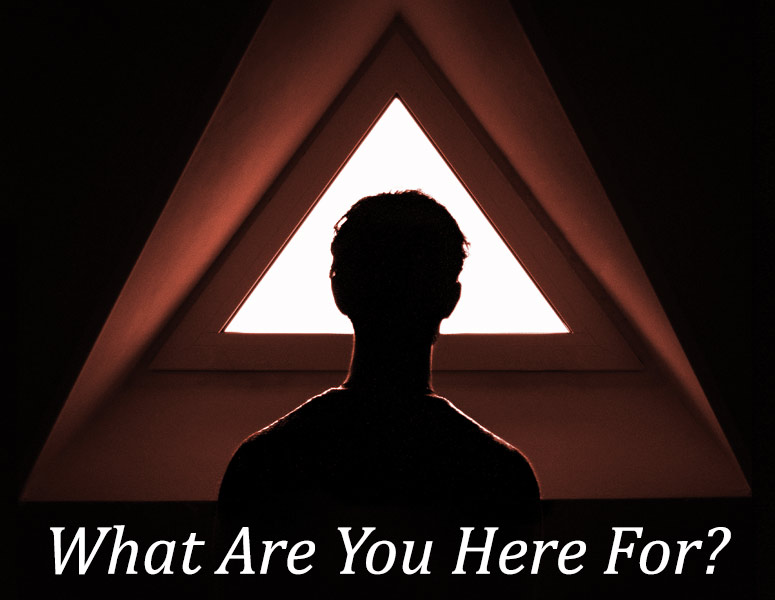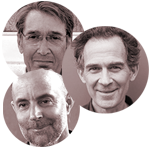If you are observant, what you will see that when you are five years old and when you are fifty-five years old, although your physical body, subtle body and psyche go through many changes, there’s something which is looking out through your eyes that witnesses all these changes, and this thing never changes at all. It doesn’t grow old, it’s not subject to suffering, it’s not subject to pleasure. ~ Philip Jacobs
In this Part 3, we continue the conversation between Paula Marvelly (the host) and Philip Jacobs (the guest-interviewee). Part 2 closed with Philip’s commentary on “turning”… and now the focus shifts to nondualism …
PM: Are you the Sheikh?
Philip Jacobs: Yes, I play the role of the Sheikh for all the dervishes at Colet House. It’s such a lovely thing to do. All I really do is stand on the skin and love the dervishes as they go past, and I am very happy doing that.
PM: Could you expand a little on the teaching of nondualism in terms of how it relates to the sense of ‘I’ and the ‘levels’ of consciousness?
Nondualism is very hard to explain in rational language because it is a model of experience. What it implies it that everything is part of one whole, there’s just one thing. In dualistic philosophies, you get two things: God and man, good and evil, and a whole variety of dualities. With nondualism, everything is perceived as a manifestation of one being. And it’s not even correct to say it is a manifestation of one being, it’s more that everything is the very substance of consciousness.
There’s just consciousness and everything is that consciousness. There are various metaphorical ways of approaching this: one is the model of four levels. Most nondual traditions have the concept of the one Self, manifesting as a creation through a series of levels. At the end of the day, all you need to understand is that there is just one thing and everything is that thing; but for some people, on the way to understanding that, it is quite useful to have consciousness manifesting through a series of levels.
According to the science of psychology, when you are a little baby you normally experience yourself as not separate from everything around you. The baby doesn’t differentiate itself from its siblings and its parents, and everything that goes on around it. In one sense this is your natural state.
As you grow up, you learn that you are separate; you learn that you have a physical body and it ends where it ends and everything outside of that is other or separate. So you learn to differentiate yourself from your siblings and parents and gradually understand that you have a name and that other things have names as well.
You start to experience yourself as a separate ego in a world of multiplicity, and that’s very necessary for relating to other people in the world of manifestation and the world of the drama. You have to have a healthy sense of being a separate self and that’s very important. So the first stage I would call, ‘I am everything’.
The second stage I refer to as, ‘I am something’. You are now starting to experience yourself as a separate self, a separate ego. The plus side is that you can relate to other apparent separate selves and the drama of life goes on; the down side of that is you start to experience a cycle of both pleasure and pain. So when the world goes in a way that appeals to you, then you are very happy. When things don’t go your particular way, then you are very unhappy. And yet this cycle goes on.
Normally in most people’s lives, at a certain point, you get a bit fed up with the cycle of pleasure and pain and you want to try and find something that you feel exists and lies beyond both pleasure and pain. If you are observant, what you will see that when you are five years old and when you are fifty-five years old, although your physical body, subtle body and psyche go through many changes, there’s something which is looking out through your eyes that witnesses all these changes, and this thing never changes at all. It doesn’t grow old, it’s not subject to suffering, it’s not subject to pleasure.
Like a mirror, it witnesses without comment what’s going on in the passing show of your life. When you notice that, you often get attracted to methods like meditation, yoga, t’ai chi, dervish turning, and so on, because it’s this sense that something is missing and yet that missing thing is actually inside you.
In fact, when you do start to look inside and see what lies behind your eyes, it can almost come as a bit of a shock. It’s like what you discover is that there is nothing there at all; it’s as if there’s a great emptiness that’s lying behind your psyche and body-mind.
In Buddhism, they refer to this as sunyata, or voidness, and in some Buddhist schools, they stop at this point that ultimate reality is sunyata; I’ve noticed that some of the contemporary Advaita teachers also stop at this point of nothingness as well. That’s a bit of a limitation because it can lead to a nihilistic view of the world, that nothing has any purpose, there’s no point to anything, and it all can be quite bleak.
But that’s not the end of the story because beyond that, is the unity experience of ‘I am everything’, and you discover that there is a presence that sits behind your psyche. That background state is deep stillness. It’s not something new; it is something that was there right from the beginning. Rather than identifying with the mind-body vehicle, ‘I am something’, you now suddenly notice that what you are is this still identity that lies behind that.
At this point, although it’s a very nice place to be, it’s as if your background identity is the great stillness of deep sleep and you are looking out on the external world as an impartial observer or witness. The limitation of that is that there is still a subtle subject-object duality.
What happens next is that you notice that everything that you experience, every sensation you perceive, is all taking place within this presence, within this still identity. At this point, you then notice that there isn’t an external world at all but that in reality, everything is taking place within you.
When you are a baby, ‘I am everything’ wasn’t an empathic experience; it wasn’t an experience that took into account all the feelings of everyone around you. With the rediscovered sense of ‘I am everything’, it’s a fully empathic experience. Everyone else is included within that. So it’s as if you have gone on a circular journey.
— — —
Philip continues his answer on nondualism in Part 4 … so, stay tuned.
Click here for Part 1 and Part 2.
— — —
Paula Marvelly is the Creator and Editor of The Culturium, a magnificent site about Art and Consciousness. Paula was also an ex Editor of Stillness Speaks.
For more information on the whirling dervishes, visit the Study Society website or The Whirling Dervishes of West London on facebook.
Images: (all edited and logo added) 1) Snapshot from Only Dance by Paula Marvelly (YouTube Video), CC BY 2.0, 2) The Birth of the son of God Year: 2011 Medium: Digital Painting Print on Canvas Limited Edition (1/7), by R. Gopakumar, CC BY-SA 3.0. 3) Face, Soul, Human, Psyche, by geralt, Public Domain, 4) Delicate Arch, Night, Stars, by skeeze, Public Domain, 5) eye 4 me(blessings:the universe in your eye), CC BY 2.0.
